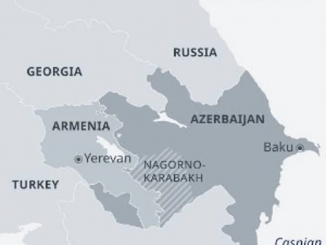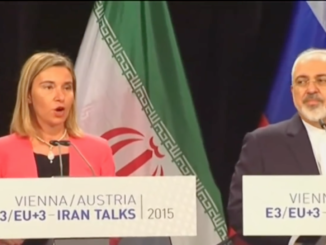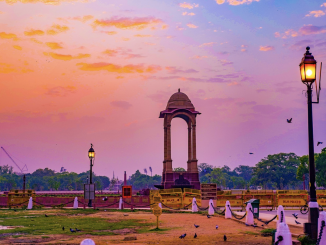
“Peace cannot be kept by force; it can only be achieved by understanding.” – Albert Einstein
Peace, in its traditional sense, refers to a state of being which is free from conflict and hostility. Peacekeeping refers to facilitating and maintaining peace between nations and communities at conflict. At a global scale, peacekeeping with the most coverage and reportage since the second half of the 20th century has involved the United Nations (UN) in some capacity.
The well-known association between peacekeeping and the UN came to the limelight in the when the UNTSO (United Nations Truce Supervision Organization) was established and sent to the Middle East to oversee a ceasefire between the Arab states and the state of Israel, just after the latter’s creation. Ironically, although to this day the conflict between Palestinians and Israel shows no signs of ending with any finality, the creation of UNTSO spawned a series of peacekeeping efforts by the UN across the globe in war-torn areas. This was with varied success rates, such as the UNMOGIP (United Nations Military Observer Group in India and Pakistan) which was tasked with monitoring the state of relations between the two countries and to report on the efficacy and violations of the ceasefire. Since the end of the Cold War, the scale and the scope of UN peacekeeping operations has expanded but its results have not always been fruitful in terms of facilitating lasting peace.
Led by some the world’s most powerful nations i.e. the US, Russia, England, China and France, the UN continued to send its peacekeeping missions to various conflict zones such as Israel, Lebanon, the Congo, Cyprus, Egypt, Western Sahara, Somalia, Sudan, Syria and so on; but at times, the effectiveness of these efforts has been a source of debate, given the correlation between the political interests of nations that influence the UN’s decision making and the countries where UN peacekeeping missions are deployed. Perhaps there are times when the limit and scope of UN peacekeeping is at the mercy of the economic and political interests of its powerful member nations and their international diplomatic agendas. There is the example of the example of the Democratic Republic of Congo (DRC) where the UN’s MONUSCO has been active since 1999; numerous multinational mining corporations there have been urging the UN to prolong MONUSCO’s mandate, amidst allegations that the extent of the peacekeeping forces’ stay is linked to keeping an eye on foreign interests; this is coupled with assertions that the operations have created lucrative commercial opportunities for troops from different countries.
Indeed, it has been argued that peacekeeping agendas can at times be akin to imperialist agendas; Rather than help transform local societies into a sustainable, peaceful state of existence keeping in view their own local traditions and their economic, political and social needs, the powerful states at the helm of UN peacekeeping missions can at times be accused of influencing local politics and reshaping societies according to their own version of moralities and political preferences. Resultantly, more often than not, their efforts serve only to maintain the political and social status-quo at the international level – the very same political order which may have indirectly led towards creation of the conflicts in the first place – an idea acknowledged by Critical Theory in the works of Pawlowska and Pugh (2005).This approach and lens to look at the peacekeeping missions is also endorsed by well-known political scholars and authors including Robert Cox, Hall, Pingeot, Mckinney and Miller, to name a few.
A recent study in the American Political Science Review noted that the effectiveness of the UN’s peacekeeping efforts is strongest when all players from the host states or the countries involved are part of the process of reforms. One does not have to look farther than the Israel–Palestine conflict, which still rages on, to realize the rationale for the argument; since its early days, the US, a powerful player in the UN’s decision making process, voted against the involvement of Palestine Liberation Organization (PLO) in the peacekeeping process and talks to end the conflict with Israel. In similar fashion, Nicholas Sambanis, a Professor of Political Science at The University of Pennsylvania and a researcher of civil wars and ethnic conflicts, when commenting on the efficacy of the UN’s peacekeeping efforts, notes that the positive effects of UN missions dwindle once the peacekeepers leave the country, suggesting that long-lasting peace has not always been the forte of UN’s missions nor at the forefront of its key agendas.
It is important to realize that each regional conflict has its own particular roots and causes, and a formula or strategy which worked in one region cannot necessarily be successfully implemented in a different region without involving local representation from both sides of the conflict. While letting the locals be actively involved in deciding the fate of their own countries can run the risk of involving bias and actors working to further their own agendas instead of focusing on a sustained peace beneficial to both sides, an effective and lasting peace is unlikely to be attained if peacekeepers are unable to appropriately grasp the basis of the conflict at the grassroots level – an understanding which cannot be garnered without the adequate participation of local actors. At many of the UN’s peacekeeping missions, an inclination towards quick-fixes and striking deals between the elite and focusing on elections can be observed, rather than strategizing peacekeeping efforts to be a custom fit with societal limitations based on local knowledge and understanding the host community’s core needs. Far too often, socio-economic reforms and reorganizations are secondary to the alignment of local political interests with those of influential countries forming part of the UN decision making entity. A reluctance from these influential countries can also be noted in the way UN’s peacekeeping forces are composed; they consist primarily of soldiers from third world countries such as Bangladesh, Nepal, India, Rwanda, Ethiopia, Pakistan, etc., and from countries directly affected by the conflicts. Troops from wealthy countries involved in decision making have far less representation.
Scholars such as David Chandler and Joshua Craze argue that peacebuilding ought not to start with a forced introduction of international blue prints or techniques which were effective elsewhere, but with an in-depth understanding of the crux of local conflicts – which may be common across different missions but with different underlying foundations. Consider the example of Haiti and South Sudan, which showed failed efforts from the UN peacekeeping mission that were based on the disarmament, demobilization and reintegration programs used to good effect in Burundi and Sierra Leone. By the same token, John Paul Lederach, a Professor of International Peacebuilding at the University of Notre Dame and a leading policy-academic, highlighted the ineffectiveness of the ‘top-down’ approach of peacekeeping which focuses more on elite interactions without always covering the interests of the society as a whole, often letting the roots of the conflict continue to spread unabated. Severine Autesserre, a French political scientist, lends support to the idea of ‘bottom-up’ peacebuilding in which the emphasis of efforts is linked to the empowerment of local communities, in order for them to determine how best to promote peace. The importance of international peacekeeping interventions cannot be understated, however; it is imperative that they are on the same page as the local peacebuilding agenda rather than enforcing their own version. There is a greater need to integrate local perceptions and societal expectations into the decision making and planning processes of deploying peacekeeping efforts across regions which the UN’s key decision making countries could not be more culturally and economically different to.
![]()




Be the first to comment